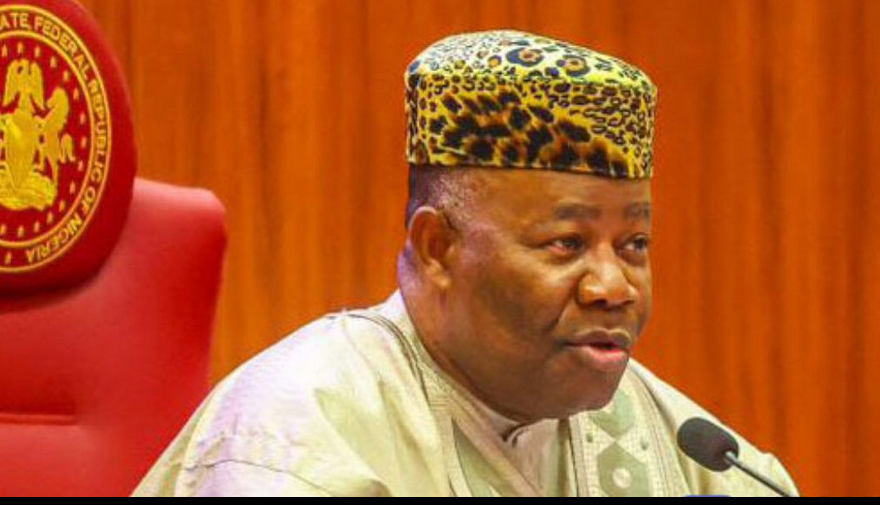Politics, they say, is like a real life movie. But every movie needs a director. It requires someone who knows when to dim the lights, when to cue the actors, and when to end the noise. On October 7, 2025, Senator Godswill Obot Akpabio stepped once again into the chambers of the Nigerian Senate, not as a performer but as a conductor of a complex national movie production. His welcome address, titled “Steady Hands for a Great Nation,” was not just a speech; it was a moral compass disguised as prose.
In a season when words are often cheap and applause plentiful, Akpabio spoke with the gravitas of a man who has tasted both power and peril equipping him to learn restraint. His voice was neither shrill nor sanctimonious. It was the voice of a steady hand in unsteady times, calling a restless nation back to the sober art of governance. “Our people do not look to us for lamentations; they look to us for action,” he declared, slicing through the fog of political drama with the precision of truth.
Under Akpabio’s gavel, the 10th Senate has found rhythm. The chamber no longer echoes with empty outrage; it hums with the quieter energy of reform. The Senate has steadied its gaze on the essentials matters of food security, constitutional review, tax and energy reform, and the restoration of hope in the civic space. Akpabio’s insistence that “accountability is the lifeblood of democracy” has not remained a line in a speech. It has become a legislative ethic.
In the face of provocation and propaganda including traded falsehoods, Akpabio has chosen focus over frenzy. He has understood, perhaps better than most, that leadership is not an arena for applause but a burden of duty. His call that “leadership is not a carnival, and governance is not a stage for theatrics” might well be a mirror held up to Nigeria’s political class and a reminder that the nation’s soul is too fragile for jesters.
The balance Akpabio has struck between the Legislature and the Executive is both rare and refined. He has managed to keep faith with President Bola Ahmed Tinubu’s reform agenda without surrendering the Senate’s independence. In his words, the relationship must be “frank and firm — neither obsequious nor obstructive.” It is a delicate dance, but one that has given the country a sense of institutional maturity long missing in its democratic rhythm.
Where past assemblies sometimes wore rebellion as a badge and submission as a secret, this Senate has chosen cooperation as a strategy for nation building. Akpabio’s leadership recognizes that governance is a relay race, not a wrestling match . He believes that each arm of government under the current Playbook is passing the baton of responsibility without dropping the torch of accountability.
The Senate President’s empathy was not theatrical. His mourning for victims of floods, insecurity, and tragedy felt authentic, not the ritual sympathy of political convenience. Yet, even in grief, he summoned resolve. “Hunger cannot be defeated with words,” he warned, demanding policy, budget, and will. It was a sermon on the altar of pragmatism carrying a rare blend of compassion and command.
Under his watch, the Senate’s interventions have tilted toward substance: stabilizing oil production, driving investor confidence, and insisting on oversight that delivers measurable relief. Akpabio has managed to weave legislative purpose with moral persuasion showing the stuff of true statesmanship.
There is something quietly radical about Akpabio’s vision. He rejects the two extremes that have long haunted Nigerian politics — fear and false hope. Fear paralyzes; false hope deceives. The Senate under his direction has walked the narrow road between them, choosing instead the courage of realism.
And so, while political noise merchants fan old embers, Akpabio’s Senate has become a metaphor of composure. It legislates in calm tones but with clear intent to rewrite the country’s story not in slogans but in systems.
Every generation of leaders faces its test. For Akpabio and his colleagues, it is the test of steadiness of governing without theatrics, of building without bluster. His speech, “Steady Hands for a Great Nation,” read like a letter to history. It was a reminder that democracy is not sustained by the loudest voices, but by the calm builders who plant ideas deep into the soil of national memory.
As the chamber’s mace glints again under the lights, one thing is certain: the 10th Senate is no longer a house of noise. It has become a house of purpose. And at its helm sits a man who knows that real leadership is not the art of talking. It is the discipline of listening, of steering, and of holding steady when the nation trembles.


